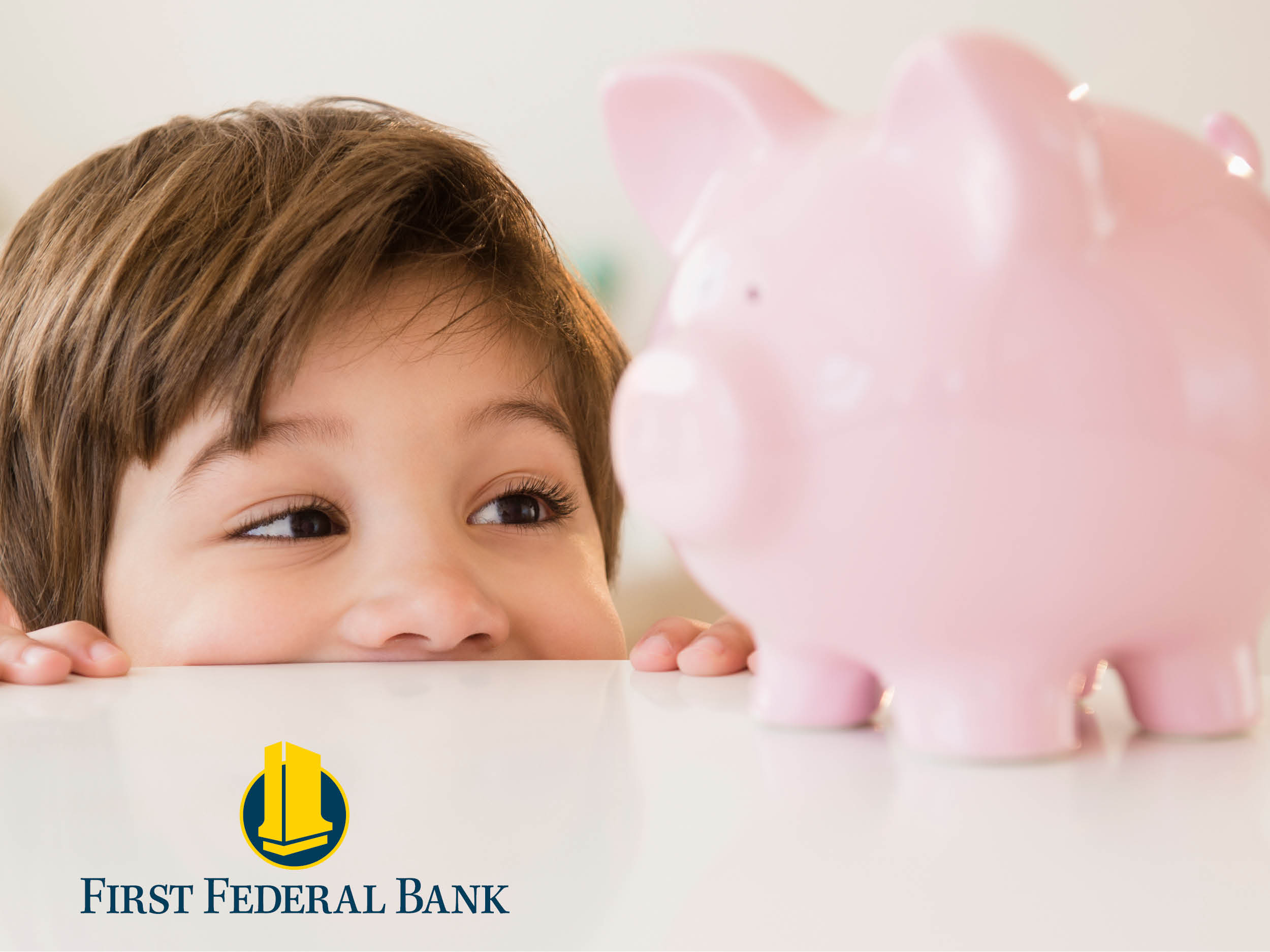Help Your Child Get Started on the Path to Financial Success
Strong financial skills are learned. Which is why as parents, it is essential to begin teaching your children about money from an early age. It...
Manage your everyday finances with convenient accounts, flexible cards, and personalized service designed to fit your life.
At First Federal Bank, we offer flexible mortgage solutions for almost any situation, helping you secure the right financing for your dream home.
Business banking offers secure financial management, streamlined transactions, credit options, and tools to help businesses grow efficiently and sustainably.
2 min read
First Federal Bank : November 29, 2023 10:00:00 AM EST

 Introducing your child to the world of finance should start at a young age and adapt in complexity as they grow. When the lesson of the day (or year) is all about saving and investing, consider using a certificate of deposit (CD) as a teaching tool. A CD will illustrate to your eager student how saving a portion of their allowance or earnings can grow into a greater sum, without the risk of losing it all due to a volatile market. Here is a closer look at why a CD is a useful, rewarding, and predictable way to teach money management to kids:
Introducing your child to the world of finance should start at a young age and adapt in complexity as they grow. When the lesson of the day (or year) is all about saving and investing, consider using a certificate of deposit (CD) as a teaching tool. A CD will illustrate to your eager student how saving a portion of their allowance or earnings can grow into a greater sum, without the risk of losing it all due to a volatile market. Here is a closer look at why a CD is a useful, rewarding, and predictable way to teach money management to kids:
Low risk
If you want to dip your child’s toe into the uncertainty of investing, a CD is a great option. It provides a guaranteed return from a financial institution and your kid will not incur any loss thanks to the federal government insurance, according to Matt Ryan Webber, writer for Investopedia.com. This can calm everyone’s nerves, a rarity in the world of investing.
“Taking out a short-term CD (three months, say) can be a good way to explain basic investing concepts to children and teach them the importance of financial discipline,” he adds.
Supervised attention
Finances and money management are complicated topics and can overwhelm even adults. With a CD, you can supervise and manage the account with your child. Essentially, you own the account so your child gets the benefits of learning and earning without the stress of management they aren’t ready yet to assume. To open a CD for your child, opt for a custodial account, which puts you as the, “custodian.” Your child is the beneficiary. They can access the money only when they become an adult, reports Thomas J. Brock, CFA®, CPA, and writer for Annuity.org.
To make sure your child receives the maximum profit of the CD’s deposit and interest, you’ll need to make a deposit and abide by the CD’s term limit, he adds.
Higher rate of return
CDs teach your children the value that good things come to those who wait. Because CDs have a higher interest rate than a traditional savings account, your child can see their bottom line earn a greater return. However, that high interest rate requires a longer wait time and a penalty risk if you withdraw funds before the CD’s term, according to René Bennett, writer for Bankrate.com.
“When the CD reaches its maturity date, you can redeem it for your initial principal investment, plus the interest it earned. Banks usually offer account holders a seven- to 10-day grace period to move their funds out of a CD,” he adds.
CDs aren’t cookie cutter, meaning they don’t lack in variety or choice. You’ll need to determine what fixed annual percentage yield (APY) you want, how long you want the CD to last, review the CD’s penalty fees, CD type, and then determine what you’ll do when the CD matures, advises Bennett.
With some research and advice from a financial professional, you and your child can find a CD that suits both your needs. This research is also an invaluable learning exercise for your child’s financial education, too!

Strong financial skills are learned. Which is why as parents, it is essential to begin teaching your children about money from an early age. It...

Money management is a complicated subject even adults can experience trouble mastering. So, it’s understandable if the prospect of teaching your kids...

It’s easy to take conveniences like direct deposit for granted without fully understanding how it works or why you should use it. You may have...
Manage your accounts, make payments, and more.
Open an account with us.